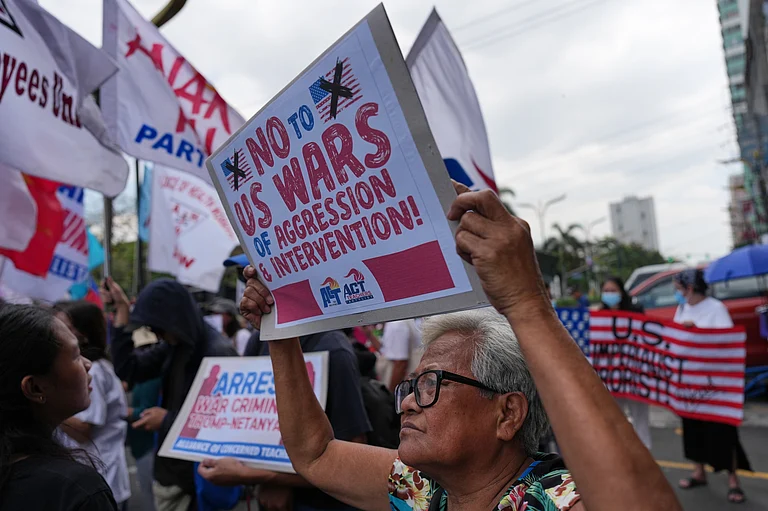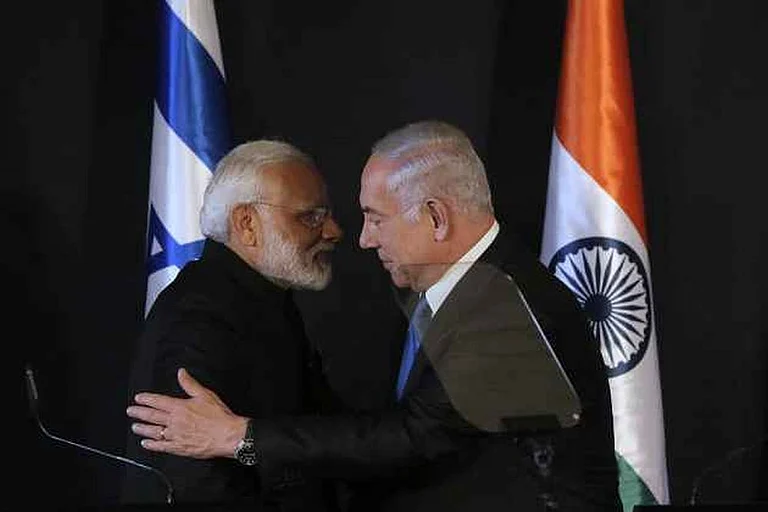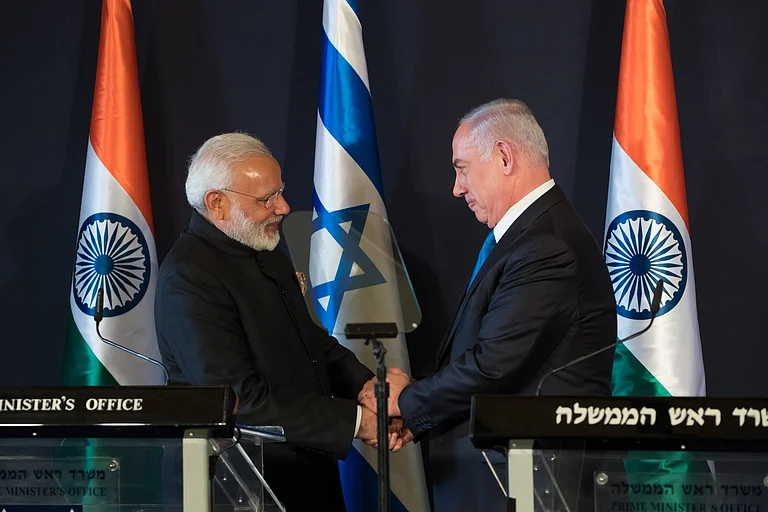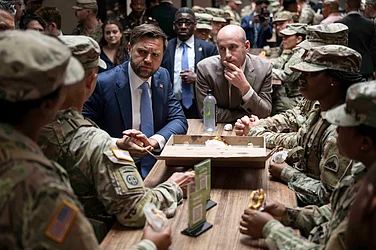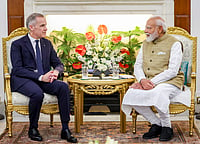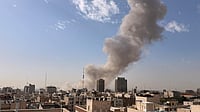Talk of a ceasefire in Gaza has been fluttering elusively for months, bringing hope to people desperate for a reprieve from the war. Hopes rose with the US, Israel’s most powerful ally backing a ceasefire for the holy month of Ramadan. There were tantalising suggestions that a ceasefire would be announced any day. Ramadan will be over early next week. Expectations vanished.
Israel is reluctant to halt the fighting. A ceasefire is not a word that Prime Minister Benjamin Netanyahu likes. Not only was there no ceasefire but attacks on both Palestinian civilians and aid workers increased. Hospitals are not functioning while gun fire continues. Israel stops trucks carrying supplies. The UN has been warning of famine for weeks. Yet none of this has moved Israel.
However, the latest killing of seven workers of the US-based World Central Kitchen has once more brought home the point, that Israel has not bothered to go by the rules of war. Israel’s supporters in the West were often been ready to believe the IDF narrative. So far, 196 UN aid workers have been killed since the beginning of Israel’s action in Gaza. Many of those killed in previous attacks were smeared under the label of Hamas agents. Countries sympathetic to Israel were ready to take the IDF’s words for it. Several countries stopped funding the United Nations agency for Palestinian refugees (UNRWA) at Israel’s words at a time when Palestinians are in dire need. But Israel cannot label the seven people killed by the IDF as terrorist sympathisers, they are not UN workers. Jose Andres, the founder of the charity has said: "At the end, it’s what we know, what everybody knows, that seven team members between the specialty security people we have — three British individuals and three international crew, plus one Palestinian — that they were targeted systematically, car by car.”
Even, Joe Biden one of Israel’s staunchest supporters, who calls himself a Zionist, can no longer look away. More so as his popularity is dipping ahead of the November presidential elections. The young, progressives in the Democratic party, Arab-Americans and African Americans—that make up the party’s support base are angry. The White House PR team has been hard at work, saying Biden is frustrated with Israel. His patience is running out. They have said that the President’s wife Jill Biden has also been urging him to stop the war. That is too much to ask when he cannot persuade Israel for a ceasefire. On Thursday, triggered by the horrific attack on the seven aid workers he spoke over the telephone to Netanyahu.
Biden did use some strong language during the 30-minute conversation. He warned Netanyahu that unless Israel changed its tactics, the US would have to make a re-assessment of its stand. John Kirby, the US national security coordinator for strategic communication, said that Biden “made clear that US policy concerning Gaza will be determined by our assessment of Israel’s immediate action” and he called for action to curtail the killing of civilians and aid workers and improve the dire humanitarian situation. John Kirby was repeatedly asked if Washington would stop providing weapons of war to Israel. He naturally did not answer this but said civilian killings were "unacceptable" and called for a "swift" transparent investigation that should be made public. Biden also urged for a ceasefire.
Netanyahu took note. Israel announced it will allow more aid to enter Gaza and reopen a border crossing. The Haaretz and Times of Israel newspapers said that the Cabinet has decided to allow for the “temporary” use of the Erez crossing and the port of Ashdod, which is about 16 miles north of Gaza on Israel’s Mediterranean coast to ferry supplies. What else Netanyahu and Israel do remains to be seen. The Prime Minister is facing flak at home for not bringing back over a hundred Israeli citizens kidnapped by Hamas on October 7. An end to war will also revive demands for Netanyahu’s resignation and action against him on corruption charges. For Netanyahu, the war has been a lifeline. His time will run out once the fighting comes to an end.
Israel has expressed regret over the killing of the WCK workers. But Doctors Without Borders (MSF) another charity that works in war-torn areas, does not buy into the apology. MSF believes that Israel from the outset had targeted those extending a helping hand to civilians in Gaza."We do not accept the narrative of regrettable incidents,” Christopher Lockyear, Secretary General of MSF International, said at a press conference in Geneva. “We do not accept it because what has happened to World Central Kitchen and MSF’s convoys and shelters is part of the same pattern of deliberate attacks on humanitarians, health workers, journalists, UN personnel, schools, and homes.”
The death toll in Gaza is now over 33,000. Does anybody care? Will this become another forgotten war? At one time Ukraine was in everybody’s mind. But two years into the war, the world is weary and focusing on the latest hotspot. And wars in Africa are of even lesser interest. The conflict in Sudan had killed over two million people in the past decade. But renewed fighting since last year has resulted in 13,000 to 15,000 deaths. And like in Gaza food is scarce and there is fear of famine for the thousands of displaced people. "The war in Sudan risks triggering the world’s largest hunger crisis,” warned Cindy McCain of the UN’s World Food Program. The Executive Director, said last month: “20 years ago, Darfur was the world’s largest hunger crisis and the world rallied to respond. But today, the people of Sudan have been forgotten. Millions of lives and the peace and stability of an entire region are at stake.” This is unfortunately the state of the world today.




